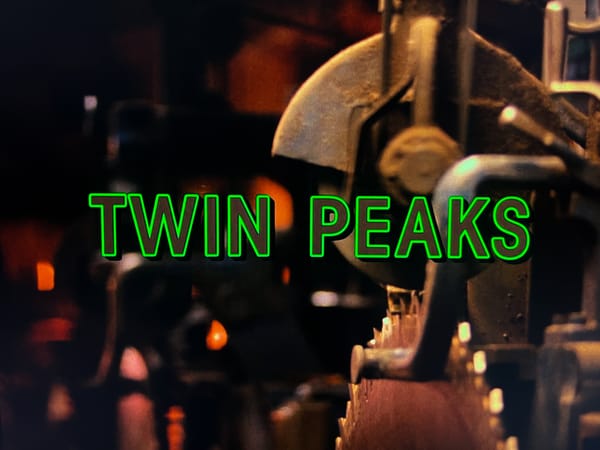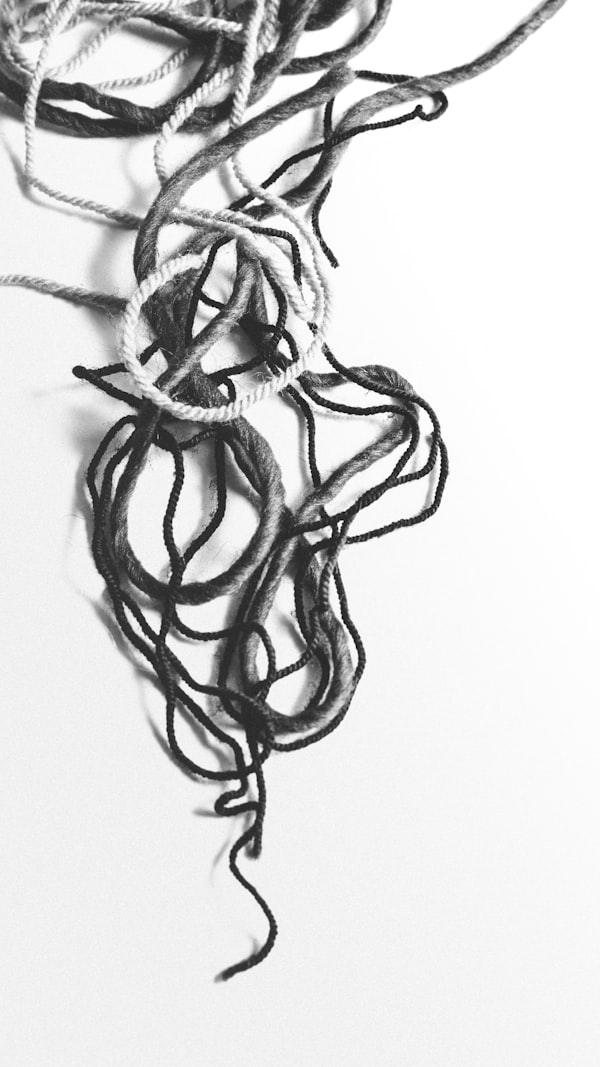Sobriety, social media, and serenity: The magic of Maribel Caves
by Melissa Gorzelanczyk
I first saw Alison sitting outside the mouth of a cave, shuffling a deck of oracle cards. It was Saturday morning of Memorial Day weekend 2021. Spring in Wisconsin. Sunlight seemed to glitter through the cedars and oaks of Cherney Maribel Caves County Park, a place hallowed by vacationers since the 1900s, who came to “take the waters” of the healing springs.
I recognized the type of cards from a distance and ceased all movement to stare. The cards Alison held were large, colorful, and used for divination, a practice I was familiar with in the quiet of my home, but not like this. My mouth tasted of coffee, though when my lips parted for a deeper intake of breath, I thought I tasted mineral.
“Just go say hi and get it over with,” my husband teased, probably sensing my draw to this stranger. I’d never seen anyone with Oracle cards in public. Definitely not outside a cave. But there she was on a morning I had unanswered questions, the kind that settled longing in my being, which often manifested as pain and stiffness in my back or hips.
Nothing about Alison was showy, though. A white woman who looked in her thirties, she wore hiking shoes, khakis, and a worn tee printed with the Zodiac. She sat away from the cave’s eye to worry the cards on her lap. Trees watched her, too, gnarled above her in cold limestone cliffs.
With families coming and going around her and people hurling rocks that crashed through saplings and gravel down the ravine behind her, Alison finished her reading. I would learn she had traveled to the park with her husband and five-year-old son, a boy who darted off as I called out to her with a lighthearted feeling.
“Would you be willing to share which deck you’ve been working with?”
“The Starseed deck,” Alison told me as she lunged to catch her son’s arm. She said something soft to him, then smiled at me. “Would you like to see?”
My questions
An hour earlier, I’d ruminated on the car ride to Maribel, phone in hand, that I should take a sabbatical from all social media for a month, maybe longer. Maybe delete certain profiles. Scenery sped by my peripheral as I continued to scroll my Instagram feed, though I’d reached the point where I didn’t know what I was looking for and hadn’t found it. The car felt cramped, stuffy, shadowed. My husband said something I didn’t really hear.
After another ten minutes, I finally dropped the phone in my lap and stared at the dust on the door, thinking:
Maybe.
I wasn’t sure yet.
I mean, a month-long break might be a little extreme.
#
The cards reminded me of galaxies. Pastel, jewel-toned, ethereal—the kind of art you’d expect on a deck named Starseed with titles such as Breath of the Cosmos, Earth Pulsing and The Void.
“They’re so beautiful.” The cards, crisp and whispery as I went through them.
“Would you like to do a reading?”
I looked up as a jolt went through my body. “I’d love that. I didn’t have time to do any ritual today.” Not yet sharing how meditation, card pulling, and journaling have been sacred and life-giving since my decision to get sober.
“Oh, but we’re in this.” Alison glanced around. Birds were singing. When they flew, the light flickered on their wings. “This is the most powerful ritual, right here.”
#
That I was hangover-free at Maribel Caves after a delicious night’s sleep was its own humbling magic. I have not had a drink since February 16, 2019. Then, I had planned to wake early and write, to live as I found myself more than two years later in the gentle morning at the caves, open, receptive, curious. Surrender might be the best word.
Instead, I had opened my eyes, and my physical state changed the plans of my heart.
I didn’t write until the afternoon. Groggy from a fun night of rosé at the pool, I turned from the soft winter light of my hotel room window and tried to sleep. I curled toward my heart. A larger healing had begun, though its true beginnings went back more than a year—back to when I first questioned my relationship with alcohol.
Around then, I found Women Who Run With the Wolves by Clarissa Pinkola Estés, Ph.D. In her book, Clarissa writes that our feminine instinctive nature, like wildlife and wildlands, has been forced into unnatural rhythms to please others. At the time, still convinced I needed alcohol to celebrate, relax, and, according to advertisements, live my best life, I felt seen in a way I had not even realized I’d been longing to be seen. Parts of my life did feel unnatural and heavy. With the help of alcohol, I often overdid extroverted activities, which I now know to limit. I lived in intensity, not serenity. The wild woman described in the book— highly intuitive, keen, playful, inquiring, fierce—felt like someone I didn’t know very well, but I wanted to know her so badly, it ached.
Mainly, I wanted to feel good. Somehow, as the years passed, self-care increasingly meant having a drink—my relationships, too, increasingly revolved around sharing a nice bottle of wine or two—which often resulted in disease. At age 37, I found myself with too many hangovers, bouts of depression, irritability, skin issues, puffiness, joint aches, and poor sleep habits.
I caught glimpses of how those things might begin to heal themselves during my times of short sobriety leading up to my decision to quit. Dry January in 2018. No booze that same summer during my first residency at Vermont College of Fine Arts.
Pounding in me the day of what I plan will be my last hangover (Clarissa’s words):
Wake up.
Pay attention.
Stop being naïve and uniformed.
Take your life into your own hands.
So I decided. I would not have another drink. Sleep drew me into her arms.
#
“Do you have a question for the cards?” Alison asked. We sat cross-legged, facing each other, outside the cave. She reached into her backpack and pulled from it a tray made of grounding copper.
“There is something,” I admitted as my heart raced, recalling the drive to Maribel and my questions about social media and my feed.
Alison nodded, “Hold that question in your mind.”
She closed her eyes and continued, reciting a prayer by Jai Gobind:
“In this moment, I would like to call in my spirit guides, angels, and teachers from the past, present, and future to come and hold space for us. I call in the Spirit of the South, the Great Serpent energy, to join us today. I call in the Spirit of the West, the wise, all-knowing Jaguar energy, to join us. Help create a shield of protection around us. Thank you. I call in the Spirit of the North, the beautiful, full-of-life Hummingbird, to flutter around us and remind us of the power to connect to the wisdom of ancestors. Help us see the beauty all around. Teach us to be flexible on the path to spiritual freedom.”
Alison called the directions and spirits until an agreement between us, which I can only assume was energetic, something subtle, descended in my being. I felt my back straighten, my hips relax. The coolness of the rock supporting me intensified against my ankles and sit bones.
Alison opened her eyes. “Pick your card. You have your answer.
Her directive that I chose felt disorienting in the moment, an echo from another morning. Which cards were best? Reminded: There might be an energy I could access in my body, a knowing, a hum. I need only pay attention.
I moved my hands through the air just above the cards spread before me on the cloth printed with foil moons. I breathed deep, easy breaths. My finger lowered to press the corner of a card.
“This one,” and I placed Star Keeper on the plate.
#
The clench of addiction is familiar to me. When I finally kicked my cigarette habit in 2006, I didn’t think much of my doctor asking if I’d started having trouble with other areas of my life. Addiction transference is a thing; it involves substituting one addiction for another to cope and satisfy the brain’s dopamine reward system.
Now that I’m sober from alcohol, I’ve noticed other areas of my life where I seek and latch on to a “Rewarding Thing.” Social media is one place. This is an addiction other sober folks know, too.
Laura McKowen, a sober person, writer, and author of We Are the Luckiest, wrote, “Social media seems like a lot of fun, but my hangovers tell me otherwise.” Too true. Often, after a scrolling binge, I found myself feeling lightheaded, disconnected from my surroundings, and adrift in the lives of other people.
Writers making things happen I had not yet made happen for me. Couples smiling on adventures while I existed the past hour alone on my phone.
People making art, making food, making better bodies for themselves.
Behind the photos hung a message: You are wasting your life and potential, but you might feel better if you take another hit.
Then the guilt began—the beating myself up for doing it again, wishing I could go back and reclaim the time. Anyone who has ever struggled with addictive tendencies will recognize this cycle.
Like Laura, I found myself looking at social media the way I had cigarettes, the way I had booze, wondering: How am I supposed to give this up?
And why should I?
Haven’t we all just agreed that this is something we do now? (Laura’s question and mine.)
Besides, this addictive side of me isn’t always destructive. Maybe it’s the reason I can finish a novel, and why a novel never feels finished. I seem tasked with figuring out how to manage difficult emotions—loneliness, boredom, stress—in ways that do not make my life feel smaller, as my other addictions have done.
Always, always: how do I ensure this tendency doesn’t boil over and do harm?
Sometimes it does.
But like almost everything in life, it can be alchemized.
It can be reborn.
#
“These three.” I settled with Alison in front of my choices. Goosebumps slid along the back of my neck.
The Blue Flame, an image of a glowing figure hovering within an ancient doorway.
The Golden Children, young figures on a barren landscape whose attention is fixed on the cosmos— the sun.
Star Keeper, an Egyptian sculpture suspended in stars gazing from a protective sphere of cobalt and turquoise light.
Alison read their meanings aloud as we sat together on an iceberg of rock. Water leaked from our eyes.
Around us, people continued to visit the park with their children, who scampered, and their dogs, who panted, leaving us undisturbed, as if we were invisible. Birds came and went on all sides.
And so, through us and from the caves, rose these answers:
Stay grounded.
Treat yourself tenderly.
Remember why you came here.
Be here.
Melissa Gorzelanczyk is a writer influenced by her belief in pleasure, creativity, nature, ritual, and self-love. She holds an MFA in Writing from Vermont College of Fine Arts. Her debut novel, Arrows, was published by Penguin Random House. She lives with her husband near a meadow she adores in Green Bay, Wisconsin.




